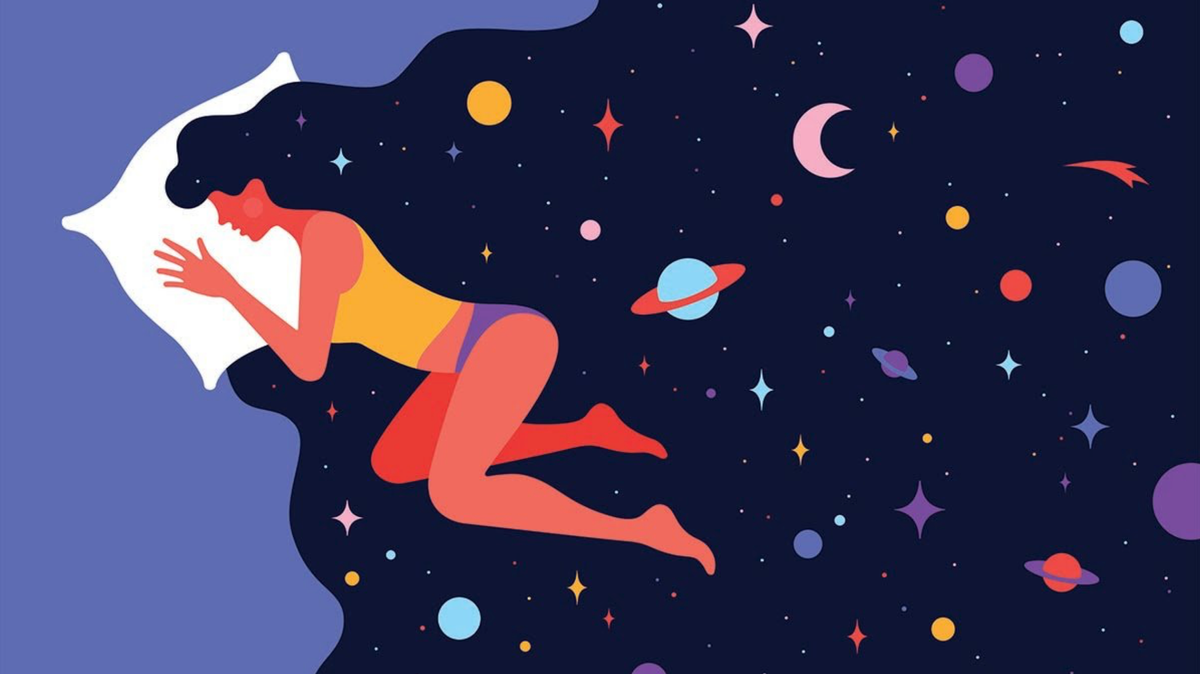What do your dreams actually mean?

Last night I had a dream that I had two tattoos that a) were rubbish and b) weren't finished. This meant I had to go back to the tattooist to have them finished, but then I was snatched away into another dream. I spoke about this with my partner today and got a caring shrug.
Dreams are often weird, wonderful, abstract, scary, pertinent and a combination of all of the above. But what are they for? I asked several people this question, and I got a range of answers. Everything from:
- They process what you've seen and heard from that day
- They're a looking glass into the subconscious
- They're what gives you deja vu
- They are gibberish and should be ignored.
When I went looking into the literature, it turns out academics have as varied a view of what dreams are for as the rest of us. In fact, there isn't really any agreement on what dreams are actually for. But there are a few things we do know.
Men have more violent dreams than women ⚔️
In new research published in the Royal Society, men report more physically violent dreams than women. However, other research has pointed out that interpersonal conflictwas twice as commonin women's dreams as they were in men's. Men, on the other hand, were more likely to dream about floods, earthquakes and wars.
In fact, says Professor Antonio Zadra, the social context for men and women is distinct. Women more often have dreams that involve arguments, or being degraded or humiliated by people that exist in their real lives, whereas men tend to experience their dreams with few if any recognisable faces.
Zadra believes dreams are a mirror of gender stereotypes, as he says, they're so encouraged during our daily lives. But while gender plays a key role in the types of dream we have, dreams change as we age.
Aging dreams 👴
According to Dr. Fogli, Dr Aiello, and Dr Quercia, our dreams and their subjects change as we age. Using the DreamBank - a repository of dream diaries maintained by the University of California - they found dreams shifted. You can explore the stories in the DreamBank in the Learn more section below.
The researchers focused on 4,352 dreams recorded by “Izzy”, an anonymous woman who, between the ages of 12 and 25, wrote down what she dreamed about every day. They found that between the ages of 14 and 17, Izzy’s dreams usually involved negative social interactions and confrontation. From 18 to 25, however, those interactions became friendlier.
In another paper, researchers found it changed the diversity of the types of dreams we have, as well as our ability to recall those dreams. Peak diversity and recall takes place between the ages of 10-19, and then goes into a steady decline as we age. Most of us won't notice these subtle shifts in our dreams over the years, but dreams can be affected daily by things like health and even what we eat.
Healthy dreams 💤
If you've ever been sleep-deprived for a night or two, your brain becomes more active during the times when you can catch 40 winks. People who have been sleep-deprived - new parents, people with stressful jobs - often find their dreams become far more vivid, and disturbing in something researchers call REM rebound.
Pregnant women also report more vivid dreams, and people with mental health challenges including anxiety and depression also report upticks in the vividness of their dreams when they're feeling ill at ease.
But why? Researchers simply don't know. Some argue it's because it helps consolidate our living experiences, others argue it's a reflection of ideas and uncertainties that dominate our thinking.
What we do know is that without dreams, and the quality of sleep that dreaming signifies, things go down hill pretty quickly. When scientists robbed bats of sleep, within four weeks they died - but researchers have no idea why that happens.
The truth is, the average person spends 27 years dreaming over their lifetime, but we have absolutely no idea why.
Ok, where can I learn more?
- Stories from the DreamBank. Researchers pull out their favourite stories from the people who sent in their dreams.
- TED-Ed has a great explainer that takes you through seven theories about why we dream.
- Exploring the world of lucid dreams - While there are lots of pop psychology websites that try to help you understand your dreams, Dr Stephen LaBerge worked at Stanford trying to understand dreams, and help people use them to their advantage.





